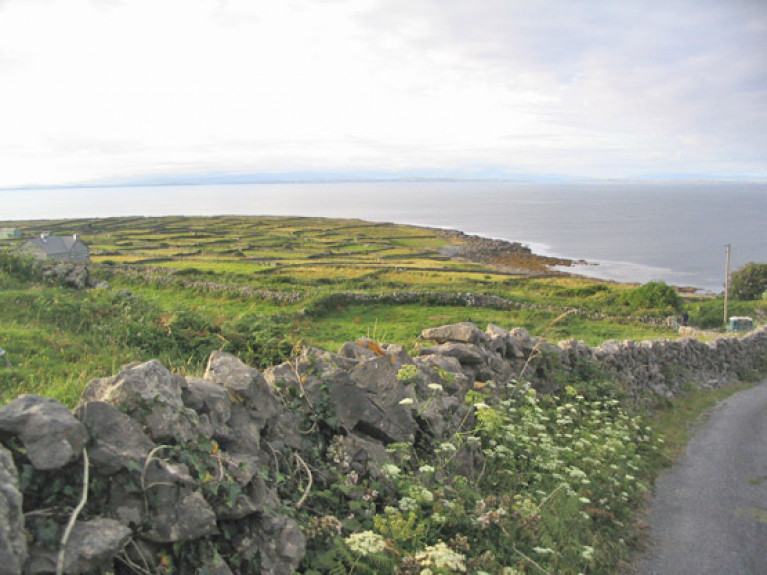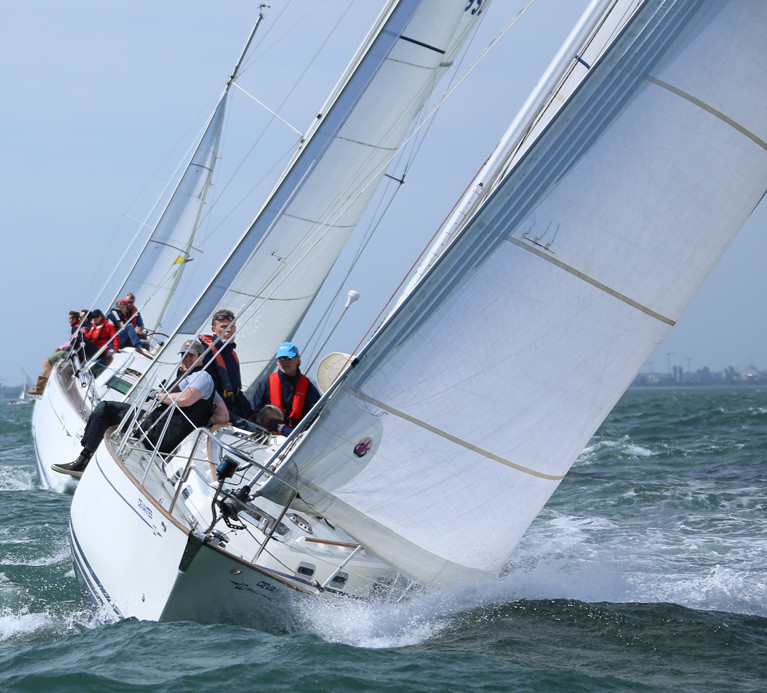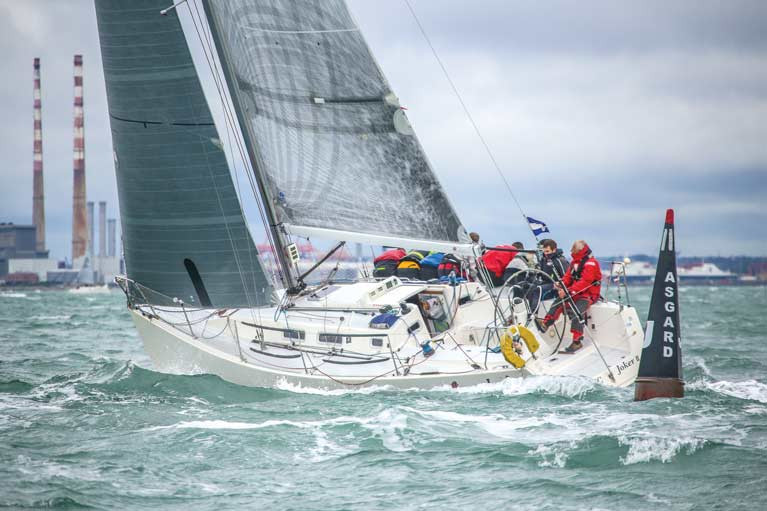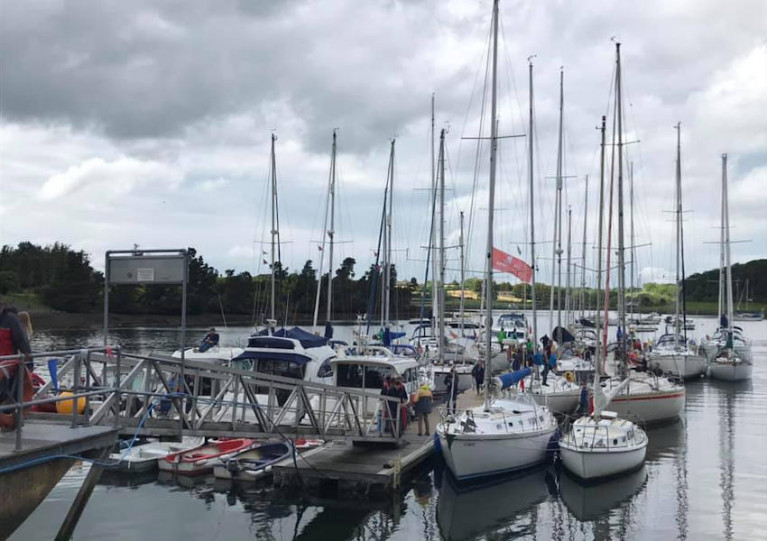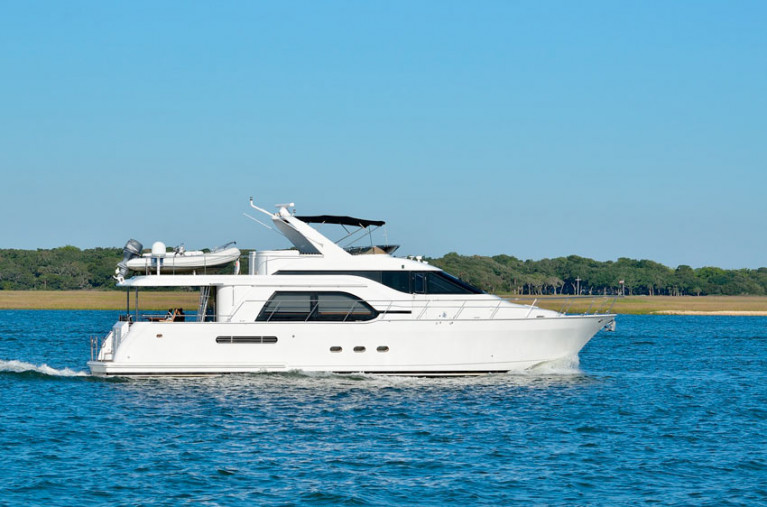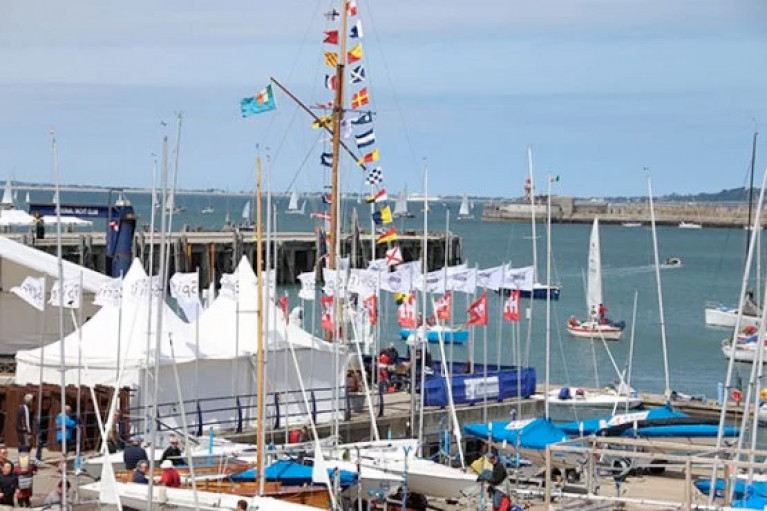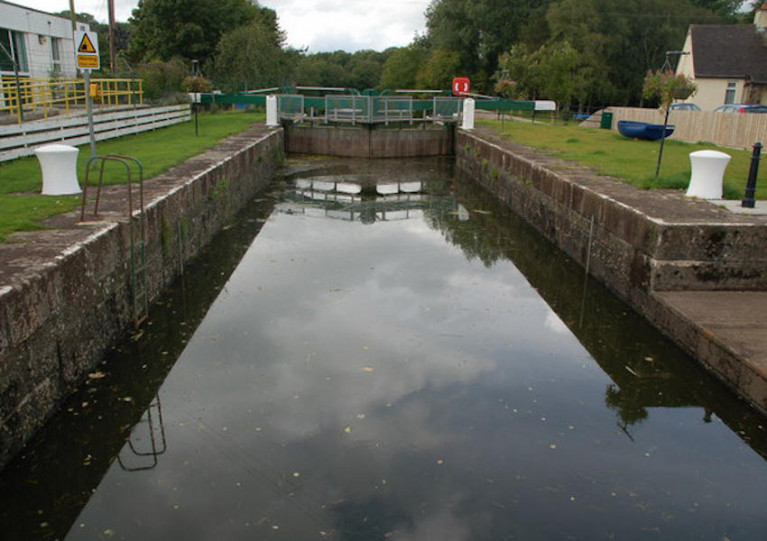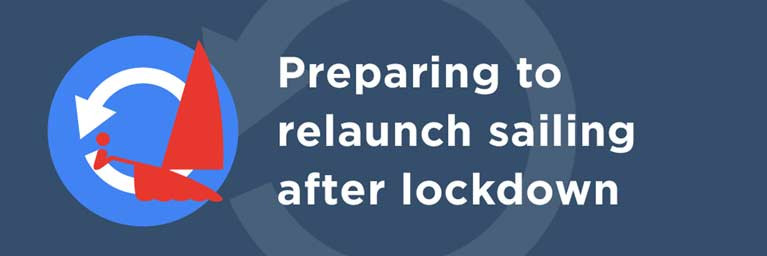Displaying items by tag: Coronavirus
Irish Sailing has issued it latest guidance document to take into account the easing of Covid-19 restrictions announced by Government last week, and which come into effect from Monday 29 June. (Downloadable below)
Essentially, there is little change in the transition from Phase 3 to 4, so this plan is likely to direct how our sports will be organised for the foreseeable future.
As Afloat reported here, the plan also outlines how a proposed pod system in order to facilitate racing that begins again under phase 3.
It’s been confirmed that tourist travel to offshore islands will be permitted from next Monday under the next phase of lifting coronavirus restrictions, which was announced last night (Thursday 25 June).
RTÉ News reports that the move was recommended by the Attorney General and the National Public Health Emergency Team (NPHET) after consultation with Comhairle na nOileán, the authority for Ireland’s island communities.
However, Comhairle na nOileán said it was not responsible for public health decisions.
Earlier this week, the islands federation Comhdháil Oileáin na hÉireann echoed comments from Gaeltacht Minister Sean Kyne in their opposition to the early lifting of travel restrictions to offshore islands, instead recommending a phased approach.
As Lorna Siggins reported for Afloat.ie, a survey conducted Inis Óirr last week indicated 92% of residents and businesses oppose reopening for the remainder of the summer due to fears over the spread of Covid-19, of which there has been one confirmed case across all three Aran Islands.
Restrictions on foreign travel are set to be lifted on Thursday 9 July, with the Government to provide a ‘green list’ of countries where people can travel without being subject to mandatory 14-day quarantine.
Following the Commodore’s Conference on Zoom yesterday (Thursday) evening to analyse the lifting of COVID-19 Lockdown restrictions, the basic reality is that club racing is allowed to resume from next Tuesday (June 30th) provided that crews comply with much-relaxed social distancing requirements, while most clubhouses will be open and functional within the same limitations.
It’s a complex situation, and it’s unreasonable to expect a long list of official does and don’ts as sailing and boating try to get back towards some sort of normality. After all, everything to do with boats and their use is supposed to be ultimately about self-reliance afloat, it’s supposed to be what seamanship is all about. So if people lack the savvy to apply common sense to a changing public health situation and how it affects our sport, then perhaps they shouldn’t be going near boats in the first place.
For ours is a robust and healthy sport, with the action taking place in the brisk open air, just as fresh as fresh air can be, while the sailing population, in general, will surely prove to have been significantly less affected by the Coronavirus than the population at large. So maybe it’s time people just got on with it, and stopped waiting for cast-iron official directives before making any move, showing instead an ability and readiness to apply personal responsibility and a capacity for initiative.
 Now, after three and more completely blank months of negativity and bewilderment and severely constrained existence, it’s time for us to get out and about and sailing again Photo: Afloat
Now, after three and more completely blank months of negativity and bewilderment and severely constrained existence, it’s time for us to get out and about and sailing again Photo: Afloat
When sailing fans demanded to know when they could go sailing again as the Coronavirus receded and Lockdown was eased through its various phases, it soon becomes clear that there’s much more to their concept of “going sailing” than simply getting into a boat with one or two others who comply for a bubble or pod within COVID-19 regulations, and then just going for a sail within five kilometres from their home port, and returning to it at the end of a mini-voyage.
Yet anyone prepared to accept that as an interim stage in the process back towards normality could have got sailing of sorts. Not perfect by any means, but sailing nevertheless. And if they felt the need for some competition afloat, they could very quickly have arranged informal matches with just one other boat sailed by friends, through the VHF or over a mobile. And they could then talk of having had a “race” as they returned in a social-distance compliant manner to the marina or mooring.
If people had been prepared to accept that as the beginning of the process, they could have been “going sailing” and having had racing of sorts since May 24th. And certainly, the Sailing Schools who are in it for more than simply enjoyment have been organising sailing of the new type for weeks now.
But in today’s very structured world, it seems that the ordinary punters want much more than just “going sailing” in order to tempt them afloat again. The truth is, they want the full monty, with an intense highly-organised racing programme, and hearty socializing afterwards. And even with cruising folk, the freely sociable element is an important part and often essential of the mix.
Either way, this “all-or-nothing” attitude was becoming much too prevalent. So maybe it’s time we grew up. None of us in Ireland among current generations has ever experienced anything remotely like this Lockdown, with its inevitable implementation of what seemed very like a high-powered version of the Nanny State.
For sure, it was necessary at the time, and the nation is to be commended for generally accepting the onerous restrictions which were imposed. But now we have to accept that the threat is receding, and it’s time to become responsible adults again. For, after three months of Lockdown, there are signs of creeping infantilism throughout society, and an expectation of complying with detailed directives at every stage.
That isn’t the way life should be in the real Ireland. We should be showing more spirit. And while it’s clear that the official and governmental authorities are risk-averse as public and semi-public authorities are programmed to be, the yacht and sailing club Commodores are showing a spirit of adventure and entrepreneurship. For in effect, they represent the vital and key private enterprise sector of our sport, and they have to get their clubs back to a level of economically-viable activity just as soon as is humanly possible.
Thus there never has been a time when the yacht and sailing clubs of Ireland have more urgently needed the full, enthusiastic and understanding support and involvement of their members. And there has never been a time when it is essential for everyone to resume sailing – albeit within limits which may in some cases seem niggling – just as soon as possible.
Several clubs are showing commendable initiative in offering significant discounts and the opportunity for late entries in order to get the complicated yet truly remarkable Irish sailing infrastructure back up and running again. The least that the sailing community can do is be supportive in backing their efforts. Sailing is ultimately a complete community activity, and as with all community activities, in the last analysis, you only get as much out of your club and your sailing as you are prepared to put into it.
 Sailing is ultimately a complete community activity Photo: Afloat
Sailing is ultimately a complete community activity Photo: Afloat
Now, after three and more completely blank months of negativity and bewilderment and severely constrained existence, it’s time for us to get out and about and sailing again. And okay, maybe, for now, it’s not truly sailing as we know and love it in all its full sporting and socially-carefree complexity. But what’s now becoming possible is a massive step in the right direction, and every journey starts with one step.
Each club is providing clearcut guidance towards taking that step in accordance with the special setup and circumstances which obtain at each club. And as I happen to sail from Howth, which has been in the forefront of the process of getting sailing going again, it’s timely to conclude with the letter to members issued by Commodore Ian Byrne this (Thursday) evening:

Dear Member,
Many of us have enjoyed the recent spell of good weather pottering responsibly in our wonderful sailing area. The Irish Sailing Return to Sailing Phase 3 plan brings us closer to a new normal, and their meeting today gave us guidance on getting back to racing.
Club racing can start from next Tuesday with full crews. In line with the Government strategy the guidelines are relaxed and emphasis has shifted to prioritising contact tracing with a recognition that, where physical distancing cannot be reasonably achieved in a sport, each individual must assess the risks and minimise them whilst trying to follow hygiene, etiquette and distance recommendations. The term ‘pod’ is used to describe a virtual household that is a crew, race committee, safety RIB etc. with each individual pod remaining socially distant from others on the water and ashore.
This also has positive implications for Junior courses and safety boat crews which the Sailing Committee will work on in the coming days.
You will already have received an email announcing that club racing fees are waived for 2020. Online entry is now available on hyc.ie. The Fingal League starts on Sat 4th July and our clubhouse will open next Monday with a special menu and our usual array of beverages served by Frank and the team inside or on the balcony in our comfortable, spacious and safe surroundings.
There is plenty of summer left to enjoy your sport through July and August. A perfect lead into Wave, Ireland’s best Regatta this year, on 11th Sep followed by the Autumn League on 19th Sep to 24th Oct. Almost 4 months of top class racing! There are a few good days to get the boat ready for next week so enter online and get racing.
Your class captain will have more details related to your class after the Sailing Committee meeting tonight including keelboat skipper responsibility to email crew and any changes details in advance each race day.
Ian Byrne
Commodore
Commodores in Conference as Sailing Set to Resume in Accelerated Phase Three from June 29th
Yacht Club Commodores from across Ireland have a conference call planned for tomorrow (Thursday) to see do they all interpret the lockdown-easing regulations the same way as sailing prepares to resume this weekend.
The acceleration of the easing of restrictions means clubs and sailing centres will now be under pressure to turn around changes quickly for the proposed 29 June start date.
Already, the country's largest racing club, Dublin Bay Sailing Club has advised members it intends to resume two weeks earlier than planned on July 7th.
Following the Taoiseach’s announcement last Friday, Irish Sailing is in the process of revising Phase three and four of its Return to Sailing Scheme. Irish Sailing has published its latest update here.
Multi-household groups will be able to crew on boats, committee boats, safety boats using a ‘pod’ system under Phase three much like Afloat described here in early May.
Irish Sailing CEO Harry Hermon says 'It appears that there will be little change in activities on the water between Phases three and four, so effectively the plan for Phase three is likely to be in place for the foreseeable future (ie the ‘New Normal’).
The main changes anticipated under phase 3 are:
- The focus for activities will be to maintain physical distancing where possible and to put in place effective measures (eg following Government guidelines on contact tracing and face masks)
- Local, Regional and National competition may resume
- Multi-household groups will be able to crew on boats, committee boats, safety boats using a ‘pod’ system (maintaining regular crew as much as possible)
- Training will also be encouraged to use a ‘pod’ system as much as possible (ie the same groups working with the same instructor for the duration of the course)
- Travel restrictions expanded to all Ireland
- Up to 200 people can gather outdoors
- Club catering facilities serving a ‘substantial meal’ may open
€70m Funding Package Approved To Support Sport Sector Emerging From Covid-19 Shutdown
A funding package of up €70 million has been approved by Government to support the sport sector emerging from the coronavirus shutdown.
This funding package will support the sport sector through:
- funding of up to €40 million for the three main field sports organisations – the FAI, the GAA and the IRFU;
- a Resilience Fund of up to €10 million to support the national governing bodies of sport, such as Irish Sailing;
- a Sports Club Resilience Fund of up to €15 million to support clubs; and
- a Sports Restart and Renewal Fund of up to €5m.
Launching the fund last night (Friday 19 June), Sport Minister Shane Ross said: “The sport sector has been severely impacted by the Covid-19 pandemic and many sporting bodies and clubs are experiencing significant financial challenges.
“We have had extensive contact with the sector and it is clear that the challenge is enormous and is being felt at every level.
“While the scale of this package may seem extraordinarily large, it merely reflects the enormity of the challenges being faced by our sporting bodies.”
Minister Ross said the new funding package “will assist our national governing bodies of sport and sports clubs as they prepare to restart their sports under the Government roadmap.
“Sporting organisations and clubs are hugely important for the social fabric of every community in the country and we want to ensure that the sector recovers as strongly as possible from the current crisis.
“The roadmap accelerations and funding being announced today will ensure the survival of our vibrant sport sector, particularly the network of clubs throughout the country. My officials will now engage with Sport Ireland to design new grant schemes, which will be administered by Sport Ireland.”
Minister of State with responsibility for tourism and sport, Brendan Griffin, added: “Today is the most important day for sport in this country during my time in this office. I am delighted that the Government saw fit to respond to the many loud calls for help from our sporting bodies.
“The scale of lost revenues, from the smallest of club fundraisers to a sold-out stadium, is breath taking. Today’s package will go a long way to aiding the badly needed recovery.”
Funding allocations to national governing bodies and clubs under the new scheme will be determined following a robust grant application and assessment process conducted by Sport Ireland.
Sport Ireland will announce an open invitation to applications from funded bodies for assistance under the grant scheme.
RYA Northern Ireland has released guidance for boaters after a Sport Northern Ireland update confirmed that outdoor activity has moved into Step 2 out of coronavirus lockdown.
However, this is limited to outdoors only and indoor activity/advice remains as it was in Step 1 until further announcements.
The Sport Northern Ireland update highlighted that:
- Groups of up to 10 are now permitted to take part in socially distanced outdoor training.
- No relaxation of restrictions is yet in place for indoor activity and as a result no indoor sports activity is permitted at this time.
- Resumption of outdoor sporting activity at Step 2 is entirely conditional on robust protocols being in place, communicated, fully understood and complied with by all participants. We would therefore urge a cautious approach.
Under the Northern Ireland Executive’s Pathway to Recovery, the following is therefore permitted:
- Outdoor activities involving small groups of less than 10 people during which it may be difficult to maintain social distancing but where contacts are brief (less than10 minutes).
RYANI has since updated and issued its Guidance for Step 2 and considerations of activity that could now take place.
The governing body continues to urge boaters to take a conservative approach to activities and to follow all public health advice in order to best help eliminate Covid-19. Guidance for access to indoors remains in Step 1 until subsequent announcements.
Cruisers From Abroad Still Banned From Irish Ports
Boaters are reminded that leisure cruisers and other personal vessels from abroad remain banned from entering ports here, despite the latest relaxation of coronavirus measures.
Ireland’s sailing community has hailed the wider return to sailing heralded by the start of Phase 2 of relaxing coronavirus lockdown restrictions from today, Monday 8 June.
And Irish Sailing has published a guideline document to all sailors and boaters, including those who have not yet done so, for getting back on the water.
But under the heading for transport and travel in the Government’s list of Phase 2 public health measures, it states: “The arrival of personal non-national maritime leisure vessels is banned (with exceptions such as ‘port in a storm’).”
The message is, for now, that cruising should keep local for the health and safety of all — and the hopeful further loosening of restrictions in three weeks’ time.
From Land To Sea: Fly Your Flag At Dun Laoghaire Harbour
As boating returns to Dun Laoghaire upon the relaxing of coronavirus restrictions, the local authority is asking everyone of all ages to make their own flag with a message of hope for the future.
All are invited to tell their own Covid-19 story with their flags which will be flown from the masts of boats among Dun Laoghaire’s sailing community.
These boats will set sail in convoy on a day of solitary this August, when Ireland is set to emerge from the fifth and final phase of health restrictions.
Friday 10 July is the deadline to submit your flag and completed submission form c/o Sandra Kelly, Community Department, County Hall, Marine Road, Dún Laoghaire — and DLRCoCo has provided some handy tips to help you get started.
Following more easing of Covid-19 restrictions announced by the Northern Ireland Executive, plans are being made by Waterways Ireland to reopen its navigations north of the border — the Erne System, Lower Bann and on the Shannon-Erne Waterway — to boating from next Friday 29 May.
The cross-border body for Ireland’s inland waterways says it is working to roll out health and safety procedures and protocols to ensure the safe return of both staff and boaters to these navigations.
Private boaters undertaking short trips on the water, as permitted under the new restrictions, are reminded to proceed with caution as navigations and their facilities have not been fully maintained since lockdown began in late March.
“It will take time to reopen the above navigations,” Waterways Ireland said in a statement. “We expect they will reopen on May 29th.
“Waterways Ireland’s locks and service blocks will remain closed in line with the five-step roadmap to recovery [in Northern Ireland]. We recognise the situation is constantly changing.”
It added that updates prior to reopening will be made via marine notices, on the Waterways Ireland website and via social media channels.
The Inland Waterways Association of Ireland (IWAI) yesterday welcomed to the return of boating to Lough Erne with a list of recommendations to keep everyone safe on the water.
The UK government’s easing of COVID-19 lockdown restrictions has brought relief to many aspects of life and, particularly certain sports. Sailing is one of those fortunate past-times that is now allowed in England, along with all other forms of watersports practised on open waterways, including windsurfing, canoeing, rowing, kayaking, surfing, paddle-boarding and the use of privately-owned motorised craft (in line with the guidance issued by the relevant navigation authority).
Sarah Treseder, Royal Yachting Association (RYA) Chief Executive has been quoted as saying: "We are pleased that Government guidance has confirmed that all forms of watersports including sailing, windsurfing and motor-boating are not only permitted, but are being actively encouraged in England.”
Treseder is quoted as adding that: "We are aware that marinas, clubs and other venues are working hard to facilitate a safe return to boating activities, although it will inevitably take a while before the full infrastructure is operational.”
This last remark echoes the concerns raised by Restart Sailing’s recent survey of Sailing Clubs, the marine industry and interested individuals. While the return to the water is welcomed, it will be some time before normal service is resumed. Most worrying is the need to protect institutions and businesses starved of income and at risk of permanent closure leaving sailors unable to practice their sport.
The survey was undertaken prior to the recent easing, but according to Simon Lovesey, founder of Restart Sailing, the results remain relevant and offer a glimpse into the difficulties faced by the sport. “The key takeaways are that individuals, clubs and businesses are desperate to see a return to on the water activity provided it can be done safely and responsibly,” says Lovesey. “However, there is widespread concern that the lockdown will take considerable time to unwind and some clubs and businesses may not survive.”
The survey’s Executive Summary highlights a number of issues, many of which are common to other sporting activities:
The sailing sector (clubs, classes and trade) is facing massive financial struggle with all activity cancelled and drops in membership renewals and other expenditure 59% of respondents believe that financial concerns will continue into the foreseeable future as Government financial support fails to reach all parts of the sector.
Real concern exists over the length of time and amount of money that will be required to restart as facilities and equipment have been effectively mothballed
Advice and guidance from the Government, Local Authorities and the RYA during the period of lockdown has been mixed Covid-19 has created a lack of confidence in people and this may inhibit the return to sport.
Equally, if the sport is seen to return to early and irresponsibly there could be real reputational damage.
Interestingly, on the positive side, the respondents indicated that Covid-19 could present opportunities to reboot the sport and institute much-needed reform.
Overwhelmingly, respondents felt that there was a need for better communication from the authorities and that similar situations in the future would be better managed with proper planning, greater agility and acting earlier.
Respondents are hopeful that at the end of the pandemic there will be lasting evidence of change in habits with greater emphasis on local events and support for local clubs and businesses. Reducing costs, improving use of technology and addressing the sport’s environmental impact are priorities.
In the immediate term, respondents are keen to see proper well thought through guidance on measures that will help reduce the risk of contagion. The continued focus on hygiene is seen as critical, as is introducing clear, simple to follow social distancing rules in marinas and boat parks. Sailing events should only be conducted if and so long as protective measures are easy to institute, follow and enforce.




























